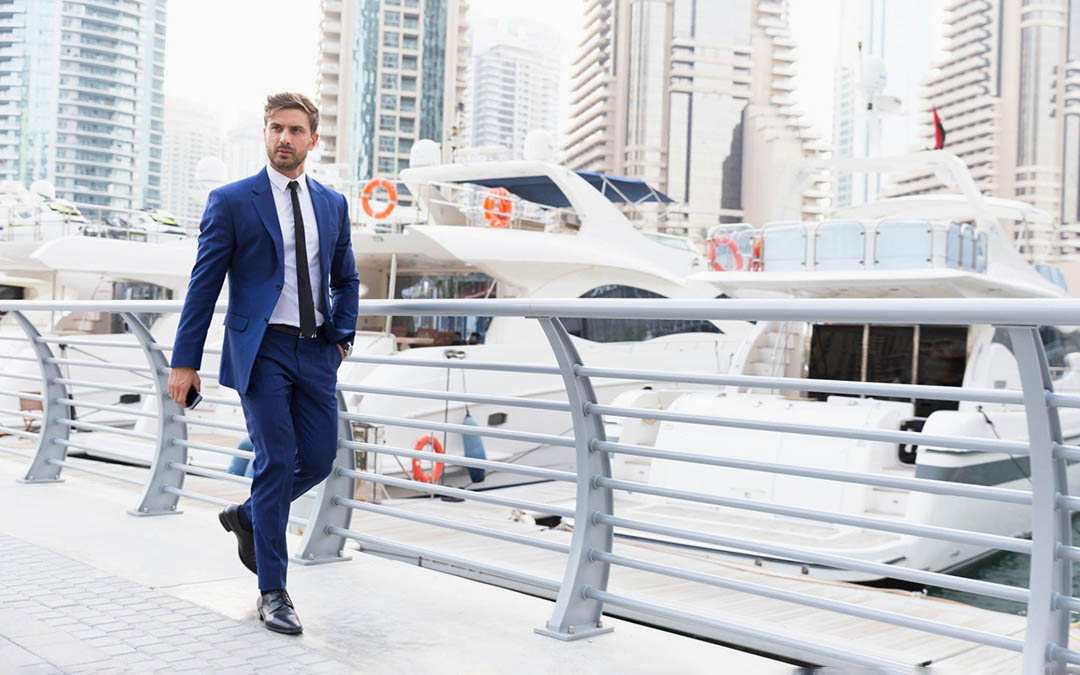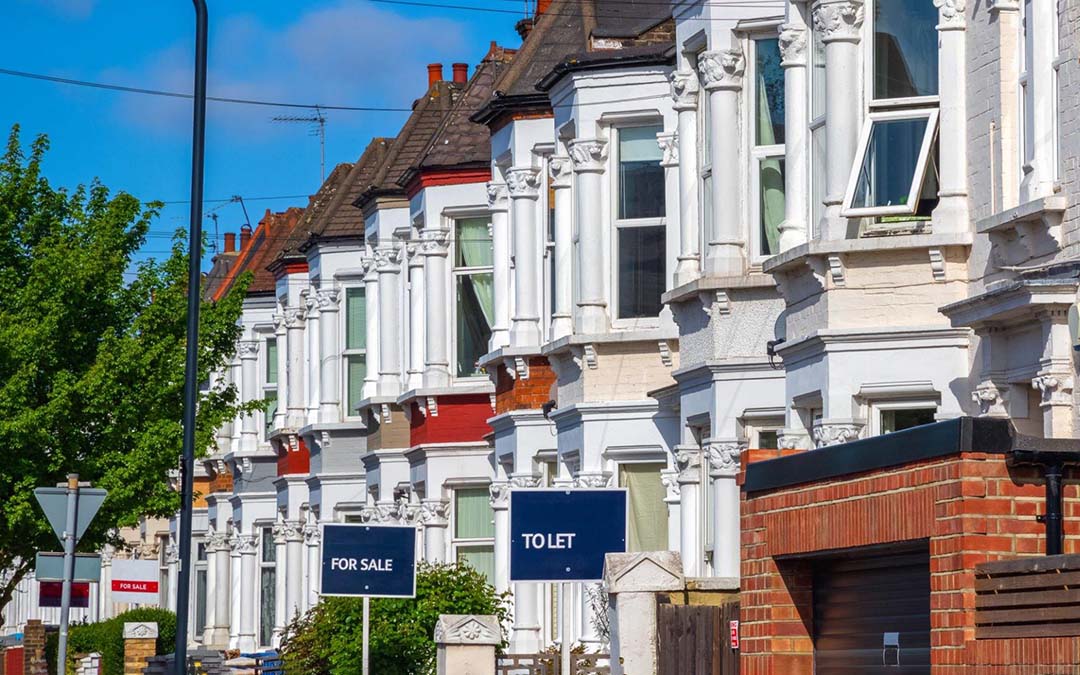Dubai – and the UAE in general – is fast becoming one of the most popular expat destinations, with 240,000 Brits now calling Dubai home.
Moving to Dubai as a British expat is an exciting time filled with new experiences and opportunities. It offers year-round sunshine, a high standard of living, great career opportunities, and an incredibly safe environment.
However, as with any move abroad, it also comes with its own set of unique challenges and considerations. This guide is designed to help you navigate the financial aspects of your move and ensure a smooth transition – with proper planning, you can make the most of your time overseas and set yourself up for a secure financial future.
The Early Essentials:
Visa & Emirates ID – you’ll need a residency visa to live and work in the UAE. Fortunately, the UAE has a very straightforward visa process, and your employer will usually take care of this for you.
However, it is important because your visa will link to your local ID card – your “Emirates ID”. Your Emirates ID is linked to, and required to establish, almost all life admin – everything from phone service providers to setting up local bank accounts.
Without an Emirates ID, it can be incredibly difficult to fully settle into life in Dubai, so it’s always recommended to have already secured a job before you make the move.
Housing – with lots of people choosing to rent, it’s worth highlighting that this can be slightly more difficult compared to what you might be used to at home. Although there are plenty of nice places to live, rent is often paid in one annual payment, which can be a shock to the system.
Although semi-annual or quarterly rent payments are becoming more common, this is usually a negotiation tactic rather than a direct alternative – so the more you spread your rent across the year, the more your annual rent is likely to be. Conversely, if you can pay your annual rent with one upfront payment, expect to lock in the best rent price.
As such, you should have savings set aside prior to your move, so that you can be prepared for this.
Social & Networking – this is always high on the agenda when moving your life to a new country. With 240,000 British expats living in Dubai, there are plenty of people in the same shoes as you. With the vast majority of people arriving in the UAE doing so with work, local business networks can be a great way to ease yourself into the community – see The British Business Group Dubai and The British Chamber of Commerce Abu Dhabi.
Tax – Understanding Your Residency Status:
Generally, the tax you pay is determined by where you are resident for tax purposes. If HMRC deem you to be UK tax resident while you are living and working overseas, you may still have to pay UK income tax on your foreign income.
If you are considered non-resident by HMRC, then your overseas income will become exempt from UK tax. Of course, if you become tax resident in the UAE, this can be particularly beneficial given the local income tax rate of 0%.
It can be quite complicated to work out if you are UK tax resident or not. Individual tax advice is certainly needed, but a good starting point is to think about how much time you physically spend in the UK and what ties you maintain with the UK (such as your home).
Ultimately, HMRC will determine your tax residency based on the “Statutory Residence Test”. Generally speaking, you could be considered UK tax resident under the Statutory Residence Test if any one of the below applies:
- You spent 183 days or more in the UK in the tax year,
- Your only home was in the UK, it was available to use for at least 91 days in total, and you spent time there for at least 30 days in the tax year,
- You worked full-time in the UK for any 365-day period, with at least one of those days falling into the tax year (i.e. you could be considered tax resident in two separate tax years).
This can be a very complicated area of tax planning, so it’s important to seek professional tax advice around your own personal situation.

Taxes – Is Dubai really tax free?
Although taxes do exist in plenty of areas, Income Tax and Capital Gains Tax are both 0%. This can significantly boost your earnings potential and your wealth accumulation journey.
However, the cost of living is high and certain things – like healthcare, accommodation, or school fees – can be expensive.
Therefore, if you are not thinking about it, it can be very easy to get caught up in the excitement of a move and spend significantly more than expected – rather than money going towards taxes, it simply goes towards other things that are more expensive than you are used to at home.
As such, it will be very important to consider your own lifestyle and priorities, and plan your budget accordingly.
Pensions & Investments – Plan for the future:
This is one of the biggest areas where a huge mentality shift is needed.
To a certain extent, a lot of this is taken care of for you in the UK – National Insurance contributions are taken from your pay cheque and build up your entitlements to State Pension without you having to give it much thought, and through auto-enrolment you will also have a private pension through your employer.
All this stops when you move to Dubai.
From now on, you will have to be proactive around saving and investing for your future – if you don’t do it, nobody else will.
There have been some developments in this space with the recent introduction of end of service savings schemes, but these are not mandatory and your employer may or may not provide it. Even if such a scheme is provided, it is unlikely to be enough and should be seen as a piece of the retirement planning puzzle rather than the sole pot of money your retirement relies on.
Pensions & Investments – Managing them effectively:
Investment strategies must be tax-efficient for the country you are tax resident in, and for the proactive, living overseas can present significant opportunities that may not be available to those still living in the UK.
For some people, simple strategies that simply take advantage of your new 0% Capital Gains Tax rate are all that is needed. With no Capital Gains Tax to worry about, your money can compound and grow at the fastest rate possible while you are living in Dubai (and assuming you have set everything up correctly).
For others with higher levels of wealth or more complex affairs, there may be offshore schemes, pensions, or planning opportunities that might not be available in the UK.
It’s always best to seek professional advice to ensure you are making optimal decisions for your own personal circumstances and future goals.
Pensions & Investments – What to do with what I have?
Reviewing your current position and ensuring ongoing suitability should be high on your relocation to-do list.
However, here are a few general pointers:
ISAs – an ISA is a popular tax planning tool in the UK, but you can no longer contribute to your ISA once you cease to be UK resident. However, there is no issue with retaining your existing ISA and continuing to manage the funds within it. You simply cannot contribute anything further while overseas.
In fact, in most cases it’s beneficial to retain your ISAs (especially if you have clear plans to return to the UK in future). Whilst specific advice is always needed, we would suggest treading carefully if the idea of closing down your ISAs is ever suggested to you while overseas.
Pensions – even though you are no longer UK resident, you can generally continue to make limited pension contributions to a UK pension scheme – and receive tax relief – for the first 5 years you are overseas.
You will no longer be an active member of a workplace pension scheme, so this can also be a good time to review your pension arrangements. If you have multiple schemes built up from holding various different jobs over the years, it can be a good opportunity to simplify your arrangements and consolidate these into one easy-to-manage pension.
However, pensions can be a complex area, especially when living overseas. As such, it’s always best to seek professional advice from a specialist around your own personal circumstances.
Taking advantage of UAE tax rates – in general, you won’t pay tax on income or gains from your overseas investments. However, there are some circumstances in which you could be subject to UK Income Tax or Capital Gains Tax if you continue to hold UK investments, so it’s always good to seek specialist advice around this and make sure you are not paying more tax than you need to.
National Insurance contributions – you will need 35 years’ worth of National Insurance contributions to qualify for full State Pension.
Usually, employee National Insurance contributions are automatically deducted from gross pay.
Whilst overseas, this will no longer happen.
But you can – and should – continue to make voluntary contributions instead.
If you continue to contribute on an ongoing basis, you will likely pay a lower rate than making up gaps later. You can do this via the government website here, or read more about this subject in our Expat’s Guide to State Pension.

What about my UK property?
Lots of people choose to keep their home in the UK, either keeping it for visits back or renting it out.
However, keep in mind that by retaining your UK home, you are retaining a UK asset – thus, UK tax will apply.
If renting it out, rental income will be subject to UK Income Tax.
If you do nothing about this when you move to Dubai, your tenant (or agent if you are using one) is obliged to deduct 20% basic rate tax from the rental income and pay this to HMRC. Therefore, you will receive the rental income net of 20% tax – regardless of what the correct amount of tax due is.
As part of your relocation planning, you can sign up to the Non-Resident Landlord Scheme so that you receive the full amount of rental income gross. This does not remove your obligation to pay UK Income Tax, it simply means that you pay it through the standard self-assessment method instead.
If you decide to sell your UK property, UK Capital Gains Tax will apply. Capital Gains Tax on UK property is the highest rate of Capital Gains Tax that exists, so it’s crucial to seek professional advice and plan carefully.
If you sell your UK property as an expat, special rules could also apply – if you are considered permanent non-resident by HMRC and have maintained your overseas status for over 5 years, then you will only be charged Capital Gains Tax on gains that have arisen since April 2015 (rather than gains that have arisen over your entire period of ownership).
There are lots of reasons to retain your UK property, so this decision will come down to your own personal circumstances and what is best for you. However, if you are looking at the property purely as an investment, then there could be more optimal investment options available to you, especially while overseas. Read more on this in our recent property vs stocks article, with the additional knowledge that UK property will carry the added drag of UK tax (something you wouldn’t normally pay as an expat living in Dubai).
Don’t Forget About Inheritance Tax!
Most long-term expats are non-resident for tax purposes and get used to the idea of “escaping the UK tax net”.
This can present an incredible platform to plan your finances and structure your pensions and investments optimally, creating opportunity for real wealth accumulation.
However, this can all be undone by Inheritance Tax (IHT) at the end of your life, to the detriment of your loved ones and the benefit of HMRC.
IHT is a very powerful tax which is charged at a flat rate of 40%. Crucially, IHT is based on your domicile status, not your residency status – something often misunderstood by the average expat.
Whilst your residency can change throughout your life depending on where in the world you are living, your domicile is a stickier concept and is unlikely to ever change during your lifetime.
You are born with a “domicile of origin” inherited from your father and very few people manage to successfully change this – it requires obtaining a “domicile of choice”, which can be very difficult to achieve, requires expert advice and guidance, and cannot be proven until after your death at which point it is tested by HMRC (so no matter how confident you are, you will never have total peace of mind or truly know that it will work).
So essentially, British expats will usually remain inherently “British” regardless of where they live.
Therefore, if you are a UK domiciled individual, UK IHT will apply to your worldwide assets on death.
This can create a particularly painful situation, which we see all too often:
- A British expat living in an environment friendly to wealth accumulation.
- Does little estate or IHT planning because they are “outside the UK tax net”.
- Significant wealth is grown.
- On a death, the estate is much larger that it might otherwise have been.
- With a combination of a large estate and no planning, significantly larger IHT receipts are created for HMRC.
Fortunately, there are plenty of avenues to explore when it comes to planning for IHT, so if your net worth is over or approaching £500,000 (or £1m as a couple), you should speak with a professional to understand your personal circumstances, your exposure to IHT, and plan accordingly.
Be aware of local laws:
Most expats are surprised at how Western Dubai life feels day to day.
However, it’s important to remember that you are now living in a Muslim country where Shariah Law applies – this is particularly relevant on death and can be especially difficult for a female in the event of her husband passing away.
Therefore, it’s generally not a good idea to keep large amounts of money onshore – local bank accounts serve a purpose for day to day spending and perhaps emergency funds, but for safety and security, larger amounts should be kept in offshore accounts in common law jurisdictions.
Similarly, if you do own larger UAE assets – particularly less flexible assets that cannot be physically moved, such UAE property – it is a good idea to establish a UAE will (to run alongside your UK will) for the purposes of covering your UAE assets.
Conclusion:
Moving to Dubai can be a life changing experience, but it requires careful financial planning and a proactiveness that may not have been so essential before.
We have been helping British expats in the region for over a decade, so if you have any questions or concerns around your financial planning, we can help, support, and guide you.
If you are looking for professional help and advice, our guide on how to pick an adviser will also prove useful.
By doing the right things, you can enjoy your time overseas and face the future with confidence, knowing your financial future is secure.
And remember – financial planning is an ongoing process, so regularly review and adapt your strategy as life evolves and your plans change.
By Technical Team @ Abacus
Please keep in mind that, whilst we aim to update these articles periodically, the content could be subject to future rule changes. Always make sure to speak to a qualified professional to ensure you have the most up to date information and are taking regulated advice around your specific circumstances.

